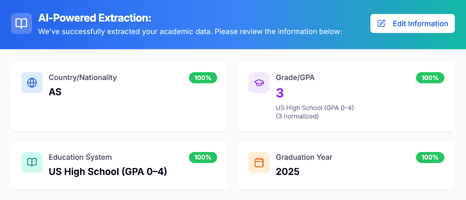Find your program
Step by Step Guide For When You Arrive in Spain


Are you thinking about going to study in Spain?
After Covid 19, it is necessary to travel with a legitimate student visa.
Therefore students who already have a student visa may still come to Spain to continue their studies. In other words, unless the borders are closed and there are no planes from your nation to Spain, you will be ready to access Spain with a student visa as long as the borders are not blocked.
The student visa permits non-EU nationals to stay in Spain when pursuing formal or informal education, performing research, or training.
More specifically, people who want to enroll in any specialized training program, master’s, Postgraduate Course, Ph.D., or Bachelor’s degree program in Spain will discover that this permission is the most appropriate option for them to pursue.
It is critical to note that such a visa is intended for persons who do not reside in the European Union or its member states.
You should note that this is not your typical residency permit. The visa application is just permission to reside in Spain when pursuing your studies.
As a British citizen, you may be accustomed to traveling to Spain without the need for any (visa) documentation. However, now that the Brexit transition phase came to an end on December 31, 2020, the UK is not a member of the EU, and as a result, several things changed if you wish to go to Spain.
Before you depart and land in Spain, there are a few things to consider.

Check Covid 19 Requirements and Restrictions
It is advised to cross-check with the Spanish Mission before traveling to Spain in your country of origin. For example, suppose you are traveling from a nation where Spain has restrictions on travel. In that case, you should contact the Spanish Diplomatic mission in your country of origin before traveling to Spain.
Upon landing, you may be interrogated by Spanish border officials to verify that you fulfill the legal entrance criteria due to existing travel restrictions.
The Spanish border authorities will only allow you to enter if they are satisfied that you fulfill the entry criteria. Spanish Authorities have the right to refuse admission if travellers do not meet the conditions.
You may be subjected to extra tests at the entry point, a temperature check, a visual health evaluation, or testing when you arrive.
At any moment up to 48 hours following their arrival in Spain, travellers may also be called and asked to participate in a COVID-19 NAAT (PCR test to enter Spain or equivalent).
Fill out Spain’s Travel Health Control form
All travellers arriving in Spain by air who do not possess an EU Online COVID Certificate or an equivalent (except minors under the age of 12 and those in global transit) will be required to complete a healthcare control form before departure, also known as Passenger locator forms for Spain.
You may do so by visiting the Spain Travel Health website, which has all the information regarding the Health control form.
While you have completed the forms (no more than 48 hours ahead of your scheduled arrival in Spain), you will be sent a QR code, which you will be required to display (on paper or through your cell device) both when boarding the plane and when you land in Spain.
Each form is unique and non-transferable, and it is connected with a particular trip. To complete the form, you will need the following items:
- Information about how to get around the world.
- Information about your trip to Spain
- Proof of vaccination, COVID test, or recovery from COVID-19.
- The email address
- Total number of ID documents

Get an NIE
After landing in Spain and starting to settle in
, it’s time for you to apply for NIE (National Identification Number), the Foreigner’s Identification Number.
The Spanish Federal Police issued a legal number to foreign citizens who do not have Spanish citizenship to engage in legitimate activities in Spain, such as the ones listed below, without being subject to arrest.
An A4 white sheet with your title, surname, birth date, city, country of birth, and the unique certificate number is the actual template of the numbered certificate.
To apply for your NIE, you must first go to the official administration website and schedule an appointment.
Visit the town hall before your appointment to ensure that you are correctly registered in the municipality where you reside.
In most circumstances, you will not require an appointment and will be able to complete your registration in one day.
Prepare the following paperwork in case you are required to provide it during this visit:
- Your passport
- Your signed rental agreement
- Living arrangements proof
- Photocopies of all docs
Many foreign exchange students come to Spain to study each year, and it’s not difficult to understand why.
The country’s Mediterranean climate is only one of the many advantages of studying there. Others include the city’s long history of intellectual brilliance - the Universidad de Salamanca, Spain’s oldest university, goes back to 1218 and is the country’s oldest institution overall.
Once it comes to selecting a study place, you’ll have lots of options since the nation is home to a diverse range of educational institutions.
Barcelona and Valencia are some of the most attractive student cities globally.
As a student in Spain, arriving in Spain from the UK, you’ll have the opportunity to receive training in the world’s second spoken language while also making many international contacts.
.webp)


























.webp)





